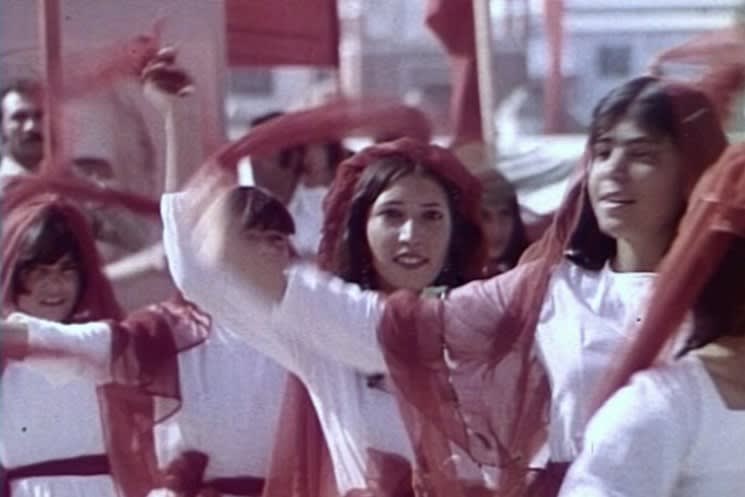The Afghan Film Organization was, at one point in time, the last respite for the preservation of Afghanistan's rich yet underexposed cinematic output. Behind the walls of this unassuming building lies the entire history of this still relatively nascent national cinema, a window into the rapidly transforming face of the country as seen through decades of films once believed to be lost. Ariel Nasr's The Forbidden Reel expertly traces the ebbs and flows of Afghani history by making use of the expansive archives of the Afghan Film Organization in what amounts to a comprehensive seminar on the nation's cinema.
While beginning within the walls of the Afghan Film Organization with thrilling interviews with former employees who once valiantly hid the archives from the Taliban behind false walls and within bunkers, Nasr's film attempts to scour the history of the country's last sixty or so years as seen through its cinematic output. Punctuated with revealing interviews of notable directors and actors and overflowing with footage taken from this bountiful archive, The Forbidden Reel uses the preserved Afghani films as a functioning timeline or barometer to the state of the nation since the establishment of the Afghan Film Organization back in 1968.
Breaking the nation's history into significant periods, Nasr follows significant regime changes and political strife through the lens of the nation's cinema. Along with interviewing the filmmakers who were filming it is at it all transpired, it is an exhaustive history lesson in the trials and challenges a national cinema must overcome to sustain itself for future generations. The community of filmmakers his film corrals together to speak on this history shows how Afghani film did not start as an industry, but as a collective of passionate artists inventing a national cinema as they went along with the shifting state of their homeland.
As visual artist and filmmaker Mariam Ghani says in the film, the best way for a national film to surge and be recognized is not just for it to be preserved, but for it to proliferate, for the population to be able to view the films of their past. In many ways, The Forbidden Reel serves that purpose: an essential effort to proliferate the bountiful history of Afghani cinema in a complete package. For those looking for a crash course in Afghanistan's National Cinema, you would be hard pressed to find a better resource than Nasr's film.
Hot Docs Film Festival has moved online for its 2020 edition. Buy tickets over at the festival's website.
(National Film Board of Canada)While beginning within the walls of the Afghan Film Organization with thrilling interviews with former employees who once valiantly hid the archives from the Taliban behind false walls and within bunkers, Nasr's film attempts to scour the history of the country's last sixty or so years as seen through its cinematic output. Punctuated with revealing interviews of notable directors and actors and overflowing with footage taken from this bountiful archive, The Forbidden Reel uses the preserved Afghani films as a functioning timeline or barometer to the state of the nation since the establishment of the Afghan Film Organization back in 1968.
Breaking the nation's history into significant periods, Nasr follows significant regime changes and political strife through the lens of the nation's cinema. Along with interviewing the filmmakers who were filming it is at it all transpired, it is an exhaustive history lesson in the trials and challenges a national cinema must overcome to sustain itself for future generations. The community of filmmakers his film corrals together to speak on this history shows how Afghani film did not start as an industry, but as a collective of passionate artists inventing a national cinema as they went along with the shifting state of their homeland.
As visual artist and filmmaker Mariam Ghani says in the film, the best way for a national film to surge and be recognized is not just for it to be preserved, but for it to proliferate, for the population to be able to view the films of their past. In many ways, The Forbidden Reel serves that purpose: an essential effort to proliferate the bountiful history of Afghani cinema in a complete package. For those looking for a crash course in Afghanistan's National Cinema, you would be hard pressed to find a better resource than Nasr's film.
Hot Docs Film Festival has moved online for its 2020 edition. Buy tickets over at the festival's website.




